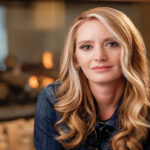When you see an unmet need, you don’t have to be an expert to make a positive difference.
“As an entrepreneur, I’m constantly learning as I go. If I waited to plan everything, I would never get ahead. This has also been my experience in philanthropy,” says Michael Ross, a business consultant who received the Entrepreneurs’ Organization’s first Global Citizen of the Year Award last year.
Some of the same essential entrepreneurial skills—resourcefulness, problem-solving abilities and a talent for engaging people with varied skill sets to work toward common goals—are key in charitable endeavors, he says.
He offers an example: On a visit to Panama, the president of the national psychology association asked for help in finding an expert to educate the country’s psychologists about HIV and AIDS because there were no resources for formal training. It took six months, but Ross was able to find a Spanish-speaking expert, get sponsorships from the United Nations Children’s Fund (UNICEF), make arrangements through the Panamanian ministry of health for continuing education credits for psychologists in attendance, and create what has become an annual international conference. He and his company, Altitude 7 Group, stay involved with the conference; the next one is scheduled for 2015.
“This experience taught me that if you have a clear vision and desired outcome for giving back, you can align the right individuals and organizations and inspire them to help make your vision a reality,” Ross says in an article on the EO website.
When he first visited Panama in 2006 after donating money to a Panama City girls’ school, Ross says he found “very warm and gracious people who really wanted to give back to their community but didn’t know how.” They wanted to create programs providing long-term solutions. Ross set up a foundation that established a residential shelter for girls who were pregnant as a result of rape or incest.
“This presented an opportunity for me to empower others to become engaged in the act of philanthropy. It’s similar to how we encourage our own employees to leverage their experiences in service of our business goals,” he says on the EO website.
Ross had entrepreneurial ambitions even as a child. Now 38 and serving as president of the Orange County, Calif., EO chapter, he was selling painted rocks to his Tucson, Ariz., neighbors when he was just 7. In high school, “when my friends were flipping burgers for $3.75 an hour, I was giving riding lessons and training horses for $20 an hour,” he says.
Growing up with an airline pilot dad provided travel opportunities that “really shaped me into having that global mindset in business,” he says. Ross has visited more than 50 countries, found a particular affinity for Hispanic culture and is fluent in Spanish. In 2011 he led 81 business owners from more than 20 countries on an EO expedition to Cuba, and he’s planning a December expedition to the Kingdom of Bhutan.
“I don’t get a lot of sleep,” Ross acknowledges by phone between teaching strategic corporate communications at Chapman University and getting ready to jet to São Paulo, Brazil, to support an EO chapter. But he says he does his best thinking at 37,000 feet—7 miles up—which is how he came up with the idea for his business, Altitude 7 (A7).
He was on a flight to London in 2009 when he says he had a life-changing conversation with Seattle entrepreneur Deborah Hey, who was in search of a new venture. Ross was also interested in new opportunities. Back in 2005, with experience as a congressional staffer and in increasingly challenging corporate jobs, he founded Casita Financial, a real estate investment firm. The Great Recession took a toll on his business, but it didn’t dampen his enthusiasm for entrepreneurship.
After talking for hours, he and Hey agreed to start a strategic business development and marketing consultancy. Having had disappointing experiences with consultants, they agreed to recruit proven entrepreneurs to work with them.
Ross, managing partner, is based in Orange County, and Hey is a partner in the Seattle office. A7 also has offices in Panama City and Washington, D.C. The company connects businesses with people, financing and marketing services. It charges a retainer to cover overhead and takes a percentage of the resulting profits, giving it “skin in the game,” Ross says.
The company stays lean by keeping a core staff of 16 to 24 and using contractors as needed, although one of the challenges has been staying small enough to fulfill A7’s mission, working with no more than a dozen clients at a time. “When starting,” Ross says, “you want to say yes to every client and revenue stream. We had long conversations on whether to take on a particular client. Sticking to our guns allowed us to be available when the opportunities that fit our core values came along, and I would argue that those decisions allowed us to grow and not compromise.”
The company earmarks 15 percent of its resources to help worthy but cash-poor clients. The most rewarding experience, Ross says, was helping a client market a moisturizer made by 2,300 Masai women in Kenya from the oil of marula tree seeds. “It was doubly satisfying to have a financing solution in place within days for them to be able to satisfy that opportunity and later to sell that to a larger buyer that is continuing to grow and invest the efforts of the Masai women and the communities that are being empowered in Africa.”
Ross and A7 stay involved in philanthropy in Panama. In addition to the HIV/AIDS conferences, they continue to support the girls’ school and shelter with money and direct involvement.
“I really believe that philanthropy needs to come organically within the community,” Ross says. “I don’t want to be the foreigner going down there and saying, ‘OK, here’s how you fix this problem, and here’s money to fix it.’ I think it’s much more effective if I can facilitate people who want to give back and give them the initial funding that they need but leverage the entrepreneurial approach and help create something that’s sustainable.”
A7, with a number of partners, is also pursuing a $2.5 billion master-planned, sustainable retirement community in Panama that will provide all levels of health care. “We hope for traction by the end of the year,” Ross says.
With any new venture, he says it’s important not to limit yourself by thinking you have to have all the answers at first; you learn and grow as you go. “I would challenge people to push themselves outside of their comfort zone. It is then when extraordinary things can happen.”









